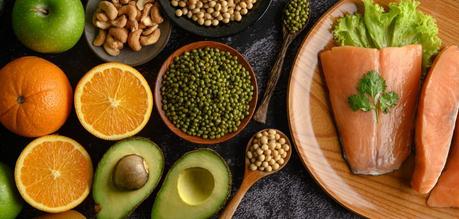
Protein has become the talk of the town, and for good reason! Serving as a fundamental building block for muscles, hormones, and enzymes, protein plays a crucial role in maintaining your overall health.
Additionally, it contributes to the development of luscious hair and nails while promoting vibrant skin. Beyond its beauty benefits, protein's slower digestion rate and lower likelihood of causing blood sugar spikes make it an excellent choice for satisfying meals.
While eggs are renowned for being a complete source of protein, there exists a trove of vegetarian and vegan alternatives that often go unnoticed. To demonstrate the ease of incorporating protein into your diet, we've compiled a list of 10 superfoods that boast higher protein content than an egg.
1. Quinoa:
1 Cup cooked quinoa = 8 g protein
Quinoa, a protein-rich whole grain, provides an impressive 8 grams of protein per cup. Notably, it stands out as a rare complete plant-based protein, offering all essential amino acids. Moreover, quinoa packs in 5 grams of healthy fiber per cup and is quick to cook.
2. Tofu:
3 Ounces = 8 g protein
Often underestimated, tofu emerges as a powerhouse protein for both vegans and vegetarians. Its versatility allows it to serve as a blank canvas for various flavors and dish types. Silken tofu blends seamlessly into smoothies, while firm tofu enhances the protein content of stir-fries and soups.
3. Cheddar Cheese:
1 Ounce = 6.5 g protein
Surpassing an egg in protein content, an ounce of cheddar cheese makes for a delightful and nutritious snack. Despite its former reputation for high saturated fat and sodium, recent findings suggest that cheese is healthier than previously believed.
4. Almonds:
1/4 Cup = 7 g protein
Though rich in fat, almonds boast heart-healthy fats that contribute to a feeling of fullness. One-ounce serving provides 6 grams of protein, making them an excellent addition to salads or a spreadable nut butter on toast.
5. Black Beans:
1/2 Cup = 8 g protein
Black beans, often overlooked as a protein source, pack a punch with 8 grams of protein per half cup. Whether used in tacos, soups, or dips, beans offer a satisfying protein-fiber combination, addressing the common shortfall in fiber intake.
6. Chickpea Pasta:
2 Ounces = 14 g protein
Contrary to the perception of pasta as lacking protein, the advent of bean pastas challenges this notion. Chickpea pasta, made from bean flours, provides a hearty texture and a substantial 14 grams of protein per 2-ounce serving.
7. Greek Yogurt:
1 Cup = 23 g protein
With a protein content surpassing that of an egg, Greek yogurt, rich in probiotics, makes an excellent breakfast choice. Enjoy it in a parfait with berries and granola or incorporate it into a smoothie for a protein-packed start to your day.
8. Peanut Butter:
2 Tbsp. = 7 g protein
Beyond being a classic spread, peanut butter adds a protein boost to various dishes such as toast, noodles, smoothies, and oatmeal. For a protein-rich snack, pair peanut butter with apple slices or celery sticks.
9. Sprouted-Grain Bread:
2 Slices = 8 g protein
Contrary to common belief, bread can contribute to your protein intake. Opt for sprouted-grain bread, offering a substantial 8 grams of protein for two slices. Look for these hearty bread options in the freezer aisle.
10. Pumpkin Seeds:
1 Ounce = 9 g protein
Protein-rich pumpkin seeds, or pepitas, serve as a nutritious snack or a delightful addition to muffins, trail mixes, or quick breads. Additionally, they provide essential zinc for immune support and magnesium for heart health.
Incorporating these diverse and protein-packed superfoods into your diet ensures that you receive the benefits of this essential nutrient throughout the day, going beyond the traditional reliance on eggs.

